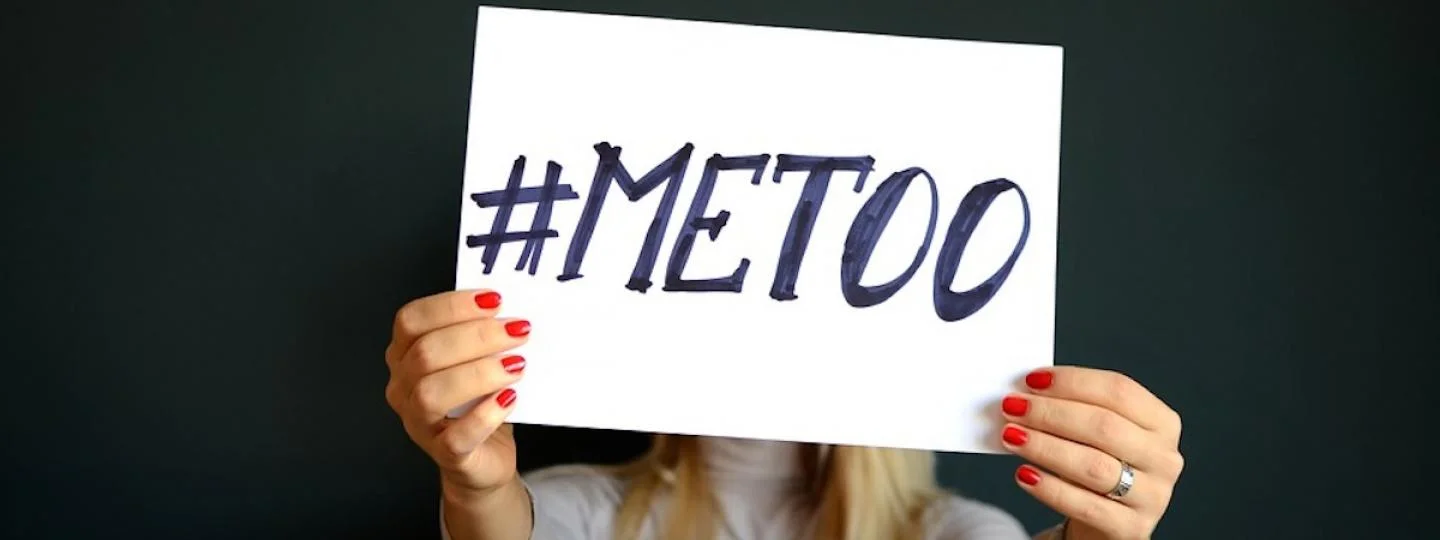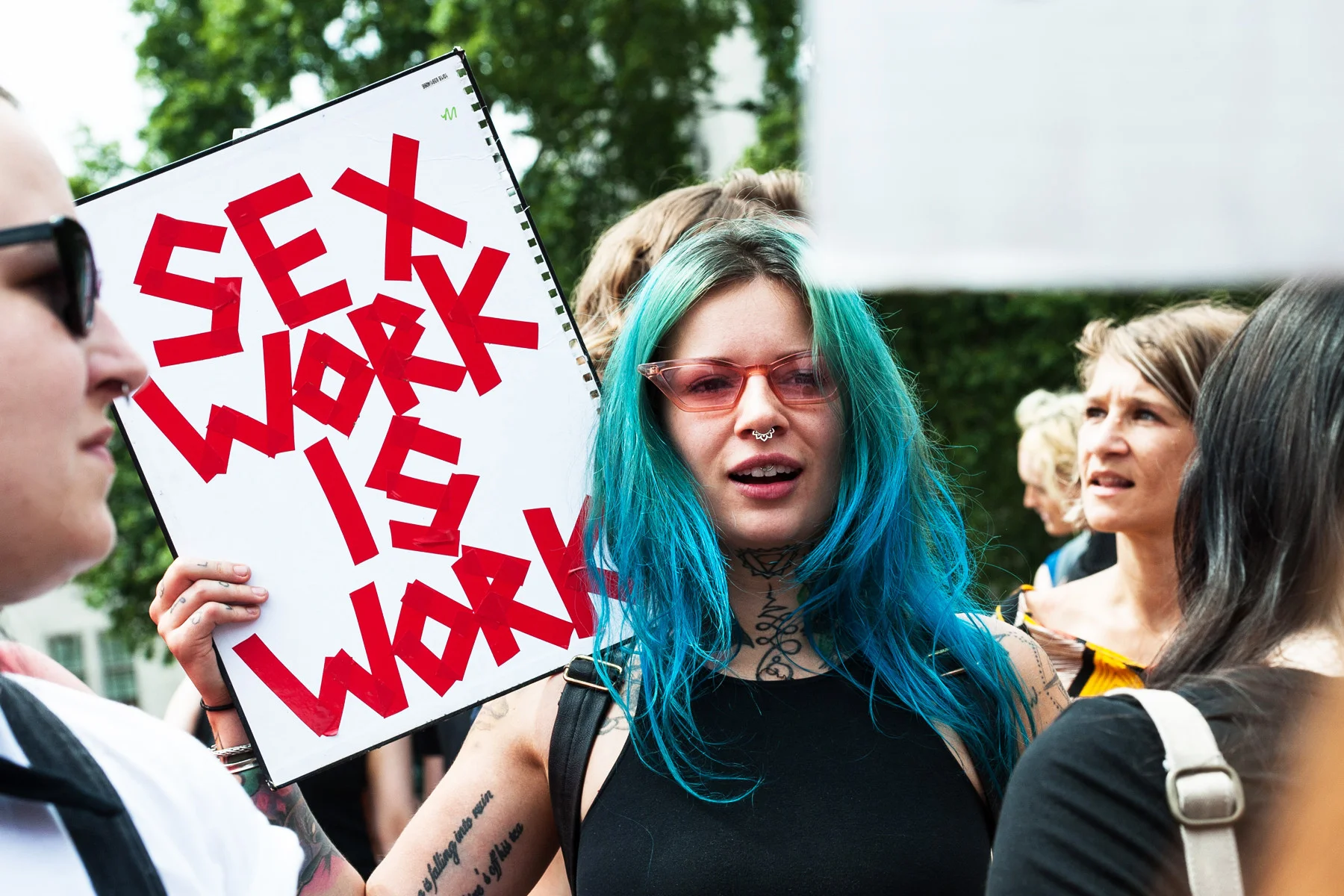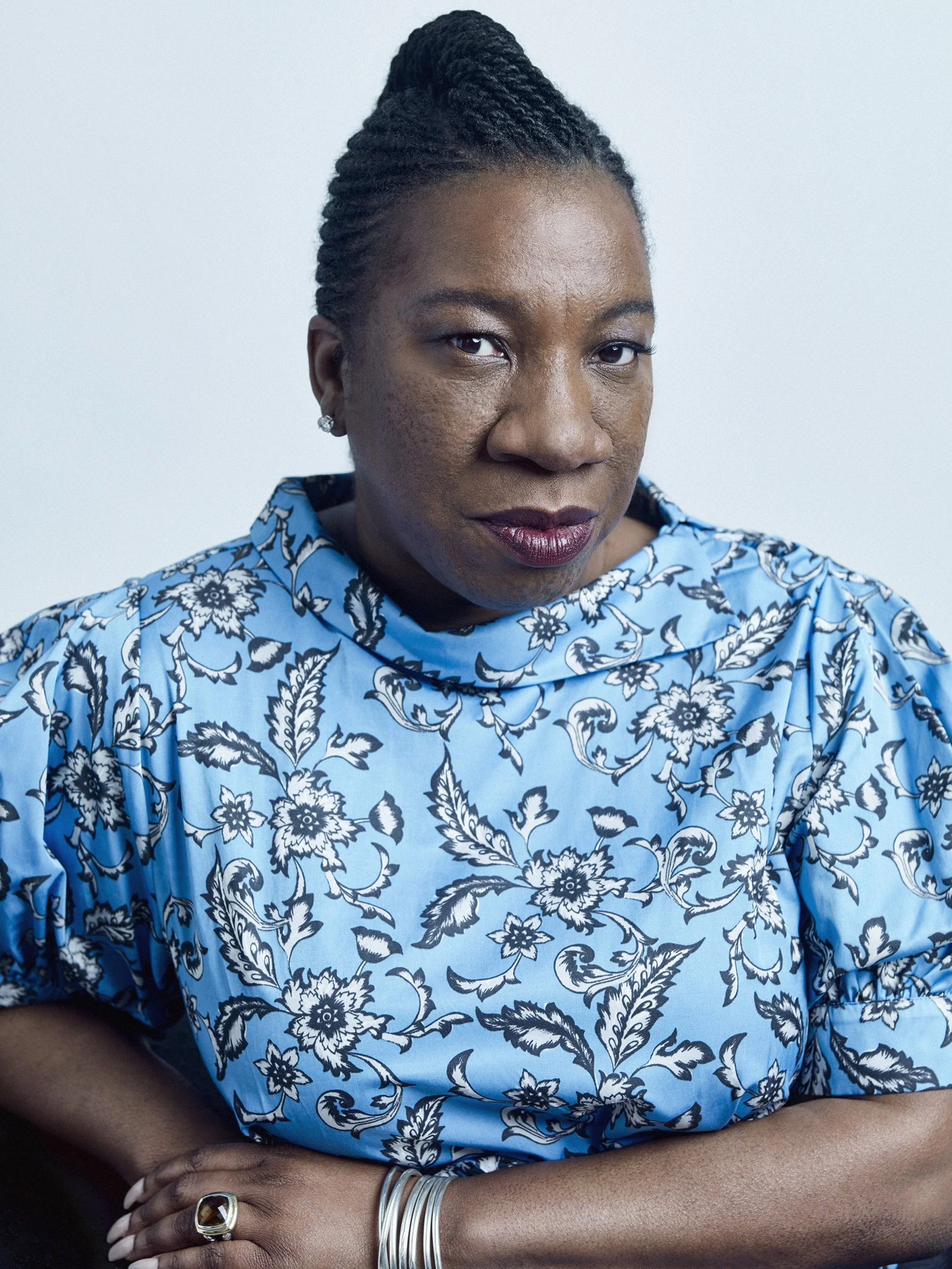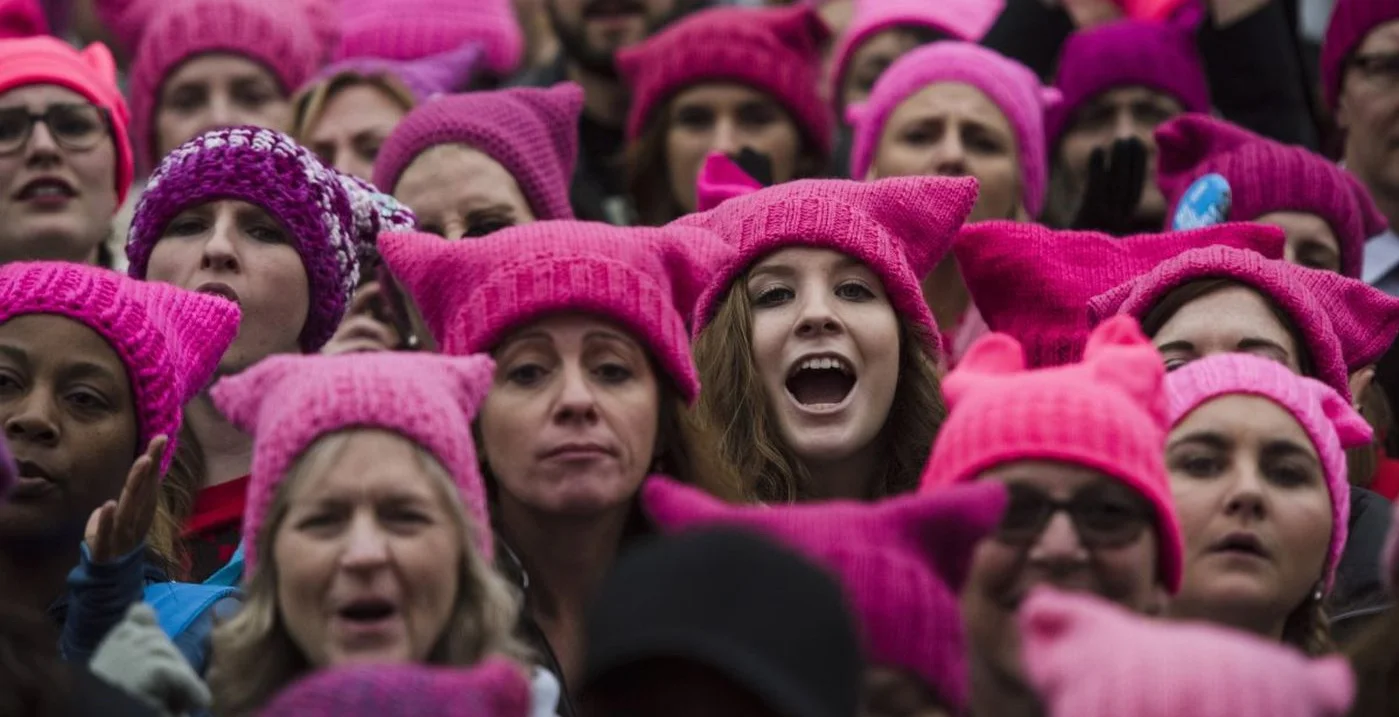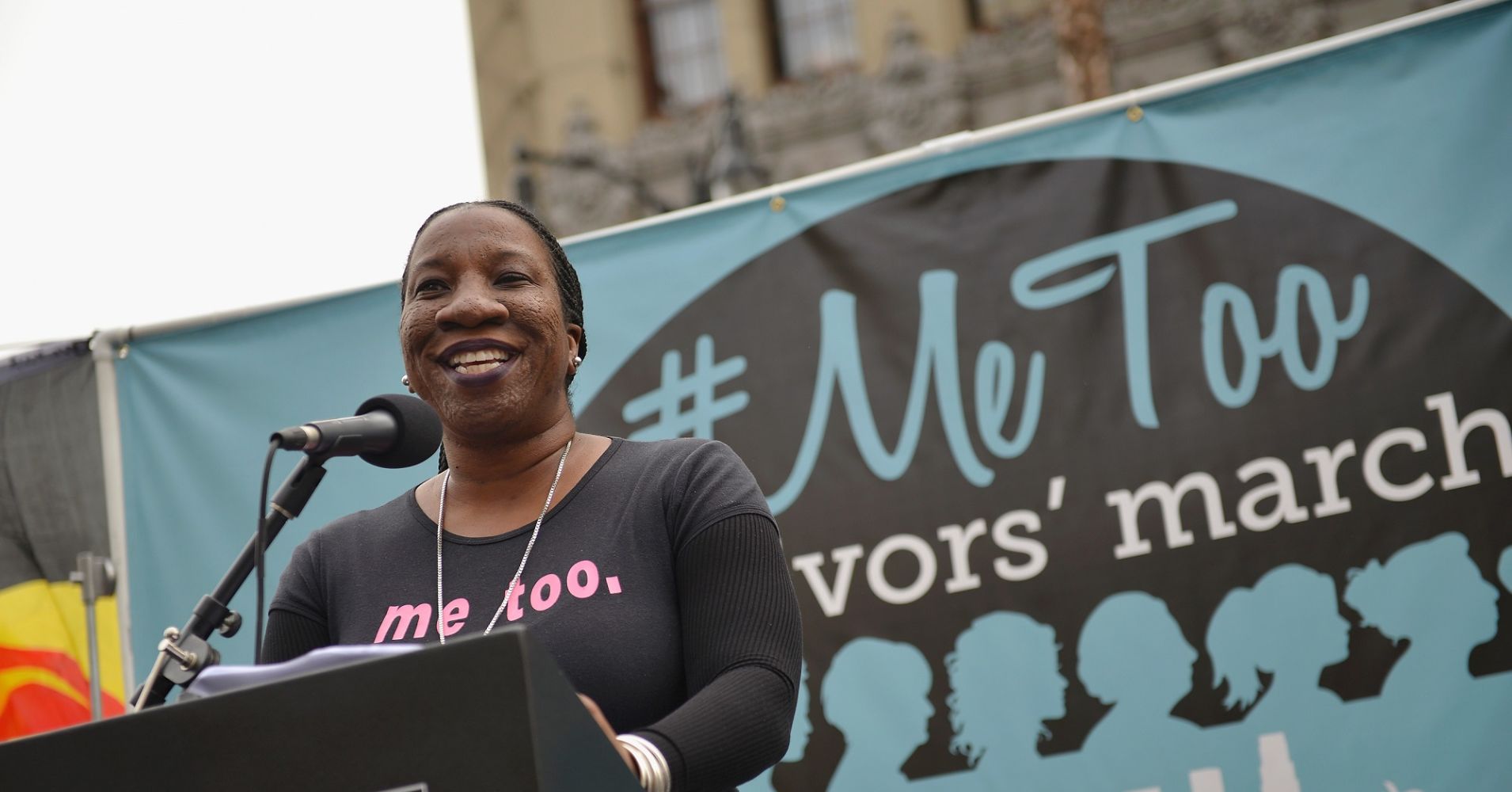#MeToo Part I: The Victims Still Silenced
Emily Acker’s BOYCOTT ESTHER, running May 1 - 19, is “an urgent response to the "#MeToo movement.” During the next few weeks, I’ll be examining different facets of #MeToo.
Content warning: This post contains discussion (and at a point brief description) of sexual assault.
I distinctly remember the first “#MeToo” status I saw on Facebook in the fall of 2017. A minute later, I saw the second. Then, immediately after, the third, each one teeming with heart reacts. On my feed, it seemed to happen overnight. I had no idea what the hashtag meant, but eventually among the flood of status updates, there were others posting articles about it, with headlines meant for someone like me, caught unawares: “Why Are All Of Your Facebook Friends Posting #MeToo?” It’s kind of an odd way to phrase it -- it makes it sound like some kind of wacky viral trend, like the black and blue dress. But the scariest part of that headline was true for my feed; it seemed like nearly every single one of my women Facebook friends had posted the same status, something that, sadly, really shouldn’t have been that surprising.
The movement has had an enormous impact since then; the media has officially dubbed us as living in “the #MeToo era.” And as that’s happened, the movement (like any) has faced trials and tribulations. Some come from not-astoundingly-credible protestors, such as the clans of nervous men who call the movement a witch hunt of false allegations. Some critiques, however, seek to add nuance to #MeToo, pointing out that since its entry into the feminist mainstream, the hashtag, while ostensibly a tool to unite women, has failed to acknowledge more marginalized and stigmatized victims of the exact same harassment and violence.
Sex workers
“How can you sexually assault a whore?” That’s a question Melony Hill has been asked several times, as she told Time for a February 2018 article titled “‘They Don't Want to Include Women Like Me.’ Sex Workers Say They're Being Left Out of the #MeToo Movement.” The marginalization of sex workers is a pressing issue of current mainstream feminism, and the #MeToo movement is one perfect example. The term “sex workers”, as defined in the Time article, includes “prostitutes, escorts, strippers, pornography actors, dominatrixes, erotic massage therapists, phone sex operators and nude webcam models.” And in Hill’s experience, many seem to think employment in any of these jobs is, to put it plainly, a way of “asking for it.” When she posted her #MeToo experience in October, just like thousands of others, instead of a flood of heart reacts and support, she was on the receiving end of claims that she “deserved to be sexually assaulted”, due to being in the sex industry.
Protestors advocating for sex workers
On top of that, there also exists the terrifying notion that any assault against sex workers can’t even be called assault, because of their line of work. The article quotes sex worker and founder of a sex worker legal organization Kristina Dolgin: “Folks are usually totally aghast [at] the idea that a woman has somehow asked for it...But when it comes down to someone engaging in sex for payment, that whole script is thrown out the window.”
Add to that the obvious obstacles that sex workers have always faced in dealing with sexual violence, despite the fact that they have anywhere between a 45% to 75% chance of experiencing it. There’s no going to the police, for legal reasons. There’s no going public, for fear of shame or further violence (such as in Hill’s case). There’s no internal system in the actual sex industry for reporting incidents, no Human Resources. So it’s disheartening when a movement like #MeToo comes along, looking to finally give a platform for victims, and sex workers are still denied their voices.
Tarana Burke
Women of color
#MeToo was founded by a black woman. Not only that, but it was founded especially for women of color. Many may remember actress Alyssa Milano popularizing #MeToo on her Twitter in 2017, but back in 2006, before it was a hashtag, the phrase “Me Too” was used by activist Tarana Burke to “spread awareness and understanding about sexual assault in underprivileged communities of colour”, according to The Independent. It’s ironic and tragic, therefore, that when her words were co-opted by the mainstream, women of color are often still seen as less credible. Just the fact that her words were co-opted in the first place, by a wealthy white actress, is a testament to that. “The oversight highlights a common concern,” says a November 2017 Atlantic article, “about the ways that black women’s contributions can be ignored or belittled, only to have the same ideas lauded when they are presented by white women.”
Some might argue that it’s just good the movement is now in the spotlight, regardless of how it got there. But the troubles go beyond just the origin story; long before and during #MeToo, “white feminism” has been called out for centering women’s issues on exclusively white women. For example, many have pointed to white women showing up at women’s marches with “pussyhats” (which are often criticized as racist for their pink color, as well as transphobic for the implication that all women have vaginas), while failing to participate in protests like Black Lives Matter.
A group of protestors sporting “pussyhats”
The #MeToo movement is no exception, with women of color’s allegations less likely to be believed. The Atlantic takes the example of Lena Dunham, a vocal feminist who nonetheless defended a writer on her show Girls (which has been condemned for its lack of diversity) when he was accused of sexual assault by an actress of color. On the other side, Harvey Weinstein himself, after staying quiet during most of his accusations, specifically spoke up to deny Lupita Nyong’o, a black actress. Why? To long-time observers of white feminism, the answer was clear.
Incarcerated women & victims of police harassment
This last group includes women from the first, and women from the second. It’s an issue in its own right, but it’s rooted in the same legal, racial, and overall marginalizing forces that affect all three.
Obviously, people of color, including women of color, are more likely than white people to be on the receiving end of any kind of police misconduct, be it harassment or outright brutality; the same discrimination is also experienced by sex workers. The Time article on sex workers and #MeToo explains:
A 2014 report submitted to the United Nations...documented a pattern of abuse by police towards sex workers that includes “assault, sexual harassment, public ‘gender searches’ (police strip searches for the purpose of viewing genitalia) and rape.” A 2016 Department of Justice report...found indications that the Baltimore Police Department disregarded reports of sexual assault from people in the sex industry, and some officers targeted people in the sex industry “to coerce sexual favors from them in exchange for avoiding arrest, or for cash or narcotics.”
In the even wider scope than just these two demographics, however, police sexual misconduct is a massive problem. Sarasota, Florida police chief Bernadette DiPino told the Associated Press in 2015 that “It's happening probably in every law enforcement agency across the country. It's so underreported...people are scared that if they call and complain about a police officer...every other police officer is going to be out to get them.” The position and authority of the police in America is a difficult dilemma in any case of police injustice and victim credibility -- but it becomes especially damning in instances of sexual assault, where there is already more shame and stigma around reporting or going public. And so, the headline of a December 2017 opinion piece by Roger Goldman in Newsweek reads: “Why Has Police Sexual Misconduct Escaped the #MeToo Movement?”
People of color and sex workers also face an increased threat of incarceration, and a Rewire.News piece from last January explains why this presents a problem similar to that faced by Melony Hill. “The public thinks criminals deserve the sexual abuse they suffer while incarcerated, and there’s a persistent belief that they do not have rights.” Despite widespread knowledge of prison rape, it’s more or less something taken for granted, or used as the punchline for jokes, rather than an issue factored into mainstream discussions of sexual assault.
But whether it’s an unsurprisingly “sleazy” Hollywood mogul, a criminal in a prison cell, or an ostensibly just agent of protection and service, shouldn’t all men be held to the same standard?
Of her original pioneering of “Me Too”, Tarana Burke said, “This was a movement that was started for marginalized people. This was work that was started for people who didn’t have access to resources and for people whose voices were not listed when we talk about survivors."
“Me too”, not as in Me too, along with the other women who have posted this hashtag, but Me too, even though conversations about sexual assault usually silence me.
So it would seem that the same exact problem that the phrase was originally seeking to highlight is only being perpetuated by its modern Internet incarnation. That is not to say that the movement has not done extraordinary good. It’s not to say the movement and the conversations it’s started are invalidated.
Tarana Burke speaking at a #MeToo march
But it’s worth noting that even when an enormous and passionate community forms around an attack on injustice, groups facing even deeper layers of that injustice are still marginalized, silenced, and discredited. That a mainstream social movement, however good-intentioned, may still be scared to acknowledge, let alone support, stigmatized people. Only time will tell what #MeToo and wider public discourse on sexual assault look one, five, ten years from now -- and whether or not it expands to give voice to any and all women, regardless of their background or occupation or race or standing. Because they are all victims, and all survivors. And isn’t that what #MeToo is about?
- Lucas

